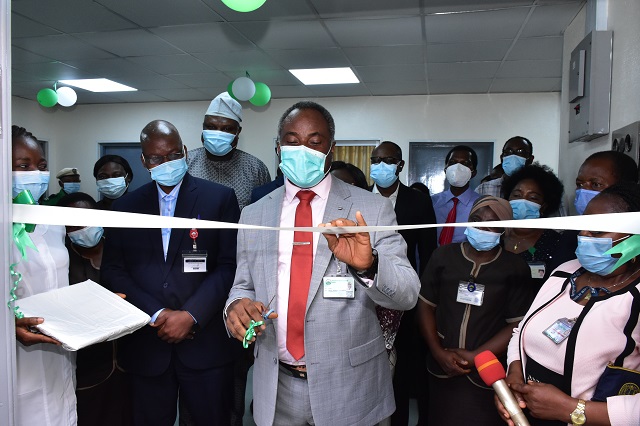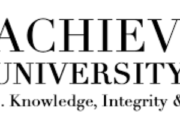
The Chief Medical Director of the University College Hospital (UCH), Ibadan, Professor Jesse Abiodun Otegbayo has been speaking about why Oyo and other neighbouring state governments should upgrade their primary and secondary healthcare delivery services and facilities.
According to Otegbayo, by doing this, these governments will be helping UCH to concentrate on its primary duties of research and taking care of extremely complicated medical issues.
Otegbayo gave these submissions while addressing newsmen in Ibadan on the occasion of his second year in office.
The Professor explained further “If you get to our out-patients’ section, is always like Jankara or Dugbe Markets. People with ailments that ought to be sorted out either at the local clinics or state’s general hospitals are there struggling for the attention of our doctors and nurses.”
Otegbayo, however, confirmed that his administration in UCH has a perfect working relationship with the present government in power in Oyo State under Engineer Seyi Makinde.
“We are doing so many things together and we will continue to support one another. The other time UCH was under the threat of being attacked, I contacted the Governor and he responded by sending armed security operatives.
“In addition, we are soon going to sign a Memorandum of Understanding that will see UCH doing technical and other things with the Oyo State government.”
He also took time to speak about the much talked-about COVID-19 vaccines.
“This is a right step in the right direction as it will have positive impact on our frontline workers and doctors. “What the vaccine does is to make you immune, the frontline doctors are supposed to be protected because they are the ones taking care of the sick.
“All over the world, the frontline workers are prioritised to protect them from being infected by the patients they are treating; so they become resistant and can continue to give adequate care and reduce community transmission of the disease.
“Then everyone will have herd immunity and eventually it will be a disease like malaria; so it is going to have a tremendous impact in the fight against the virus,” he said.
Otegbayo added that the COVID-19 pandemic had contributed to the prevalence of infectious diseases in the hospital.

The UCH chief said that the second wave of the pandemic might be waning based on statistics gathered in the hospital.
“As of Feb. 20, 2021, out of 59 swabs, available results showed seven new positive COVID cases, two are members of staff and five non-staff members. “A positive testing rate of about 12 per cent compared to 25 per cent, this is less than 50 per cent of what was observed last week.
“It is the lowest positive testing rate so far in 2020 and tells us is that COVID-19 phase 2 is going down.
“Meanwhile, UCH has managed 947 COVID-19 positive patients either as in patients or in-home care during the pandemic; 494 staff members are involved and 453 non-staff members.
“We have not recorded any mortality as a result of COVID-19 among our staff members,” he said.
Otegbayo, while responding to the question of what his plans will be in the next two years, the Professor said “Power generation will be vigorously pursued. We have already laid the foundation for the building that will house our independent power facilities. We will also work towards the acquisition of more state-of-the-art equipment. We want our people to stop going to India and other countries to seek medical attention. We have the manpower.”
Packaged by Alice Egbedele










































































